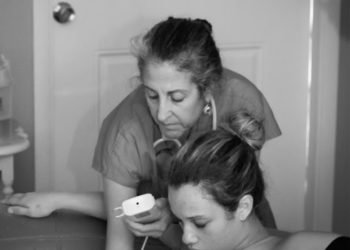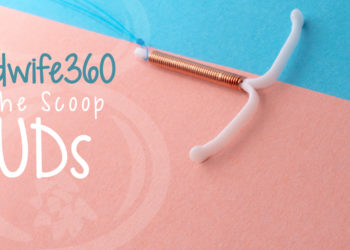Breastfeeding is a natural and healthy way to feed your newborn. However, it can be challenging for new moms to get the hang of breastfeeding. Breastfeeding tips and tricks can help make it easier. If you’re a new mom who is breastfeeding, you’ve probably been told to get comfortable with the idea that breastfeeding takes practice. In this article, Midwife360 will share 5 breastfeeding tips and tricks for new moms so that you can start off on the right foot.
What is Breastfeeding?
Breastfeeding is the feeding of an infant or young child with milk from a woman’s breast. Research states that breastfeeding has many benefits for both mother and baby. It provides immunities, nutrients, and antibodies to the baby. Breastfeeding also helps in reducing the risk of breast cancer in mothers, ovarian cancer in mothers, childhood leukemia, type 2 diabetes, obesity, and sudden infant death syndrome (SIDS). in children.
Under normal conditions, a breastfed child will grow in size and weight at a rate similar to that of an exclusively formula-fed child. The World Health Organization (WHO) recommends exclusive breastfeeding for 6 months and continued breastfeeding up to 2 years of age or beyond. The American Academy of Pediatrics advises exclusive breastfeeding for about 6 months and continued breastfeeding until at least the age of 2 years.
Breast milk can be expressed from the breasts of any lactating woman. Breastfeeding is the recommended norm in many countries and has been observed to be much better for mothers’ mental health than formula-feeding. The WHO states that breastfeeding should take place as long as it is mutually desired by both mother and baby.
5 Breastfeeding Tips and Tricks
Breastfeeding is a natural and healthy way to feed your baby. It’s also an effective way to protect against infection and illness. Breastfeeding can be challenging at first, but it gets easier with time. It’s important that you have the right support system in place before you start breastfeeding.
Make sure to talk to your doctor and family members who have breastfed before. If you’re having trouble breastfeeding, consider contacting a lactation consultant or other healthcare professional for help. You’ll need to pump milk until the baby starts eating solid foods – usually around six months of age.
- Finally, don’t forget about your own health while breastfeeding! Make sure that you’re getting the nutrition you need from your diet and that you’re taking your prenatal vitamins on time.
- Find the right position to nurse. Lying down on the side gives your baby more access to your breast tissue, increasing milk supply. Sitting up with a pillow under your knees is good for tired moms. Breastfeed on one side for the first few days. This gives your baby more time to latch on and get a good milk supply.
- Be PATIENT- Let your baby nurse for about 10 minutes before you offer another feeding.
- Practice burping your baby because It lets air out of the stomach, reducing gas pains.
- Consider getting a hospital-grade breast pump- It will help increase your milk supply and save you time.
Breast Feeding Problems & Solutions
Some of the problems that can happen at any time during breastfeeding include: your breast not being able to make enough milk, milk supply decreasing too quickly, or a baby that needs to be fed more often due to low weight gain. If your baby is losing weight too quickly and you have been nursing for 4 hours or longer each day, there may be a problem with their milk supply.
Sore nipples can happen for a number of reasons including not being latched on correctly or if you have cracked or dry skin on your nipples. If sore nipples are causing pain during the feed, it’s important to try to get help quickly because this is one of the first signs that you are having a problem. Nipple soreness is often something your body can’t do on its own in order for breastfeeding to work.
In addition to low milk production. Latching problems, breast infections, and injuries to the nipples all affect breastfeeding as well. If you encounter one or more of these problems, it’s important that you find a pediatrician who can help.
Why You Should Start Breastfeeding Today
There are many benefits to breastfeeding. It provides natural immunity that can help protect your baby from illness. Breastfeeding also helps you bond with your baby which helps them feel more secure and loved. Feeding problems can happen at any time during breastfeeding, but it’s best to get help as soon as possible to avoid long-term problems for both you and your baby.
Breastfeeding is the best way to feed your baby and give them the best start in life. Breast milk contains nutrients that are important for your baby’s growth and development. If you’re a new Mom looking for support in this area or need more details, contact the midwives of Midwife360 today!


















